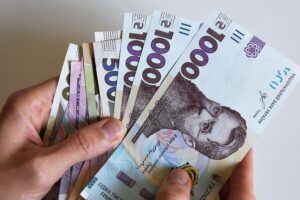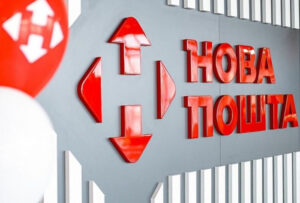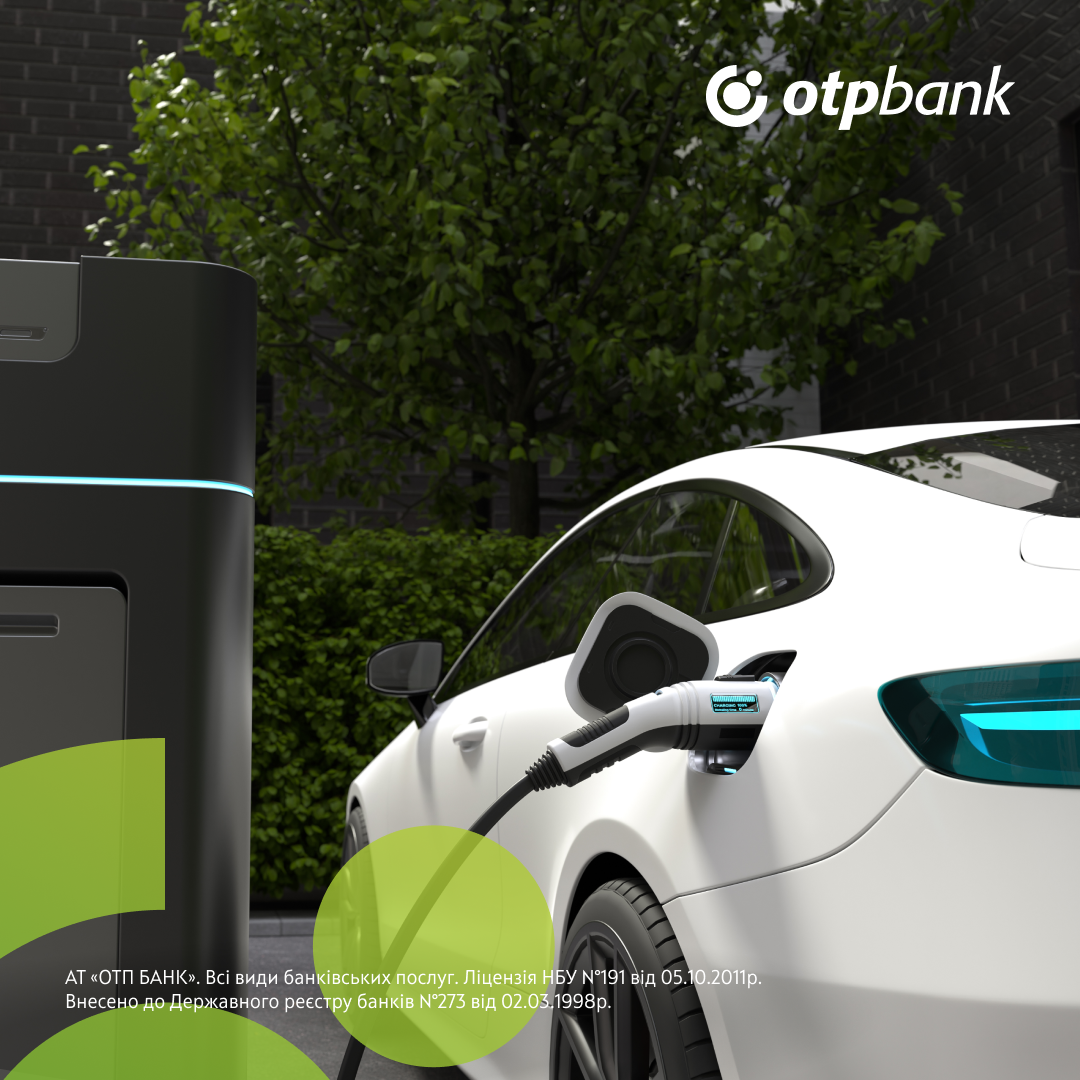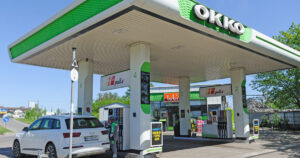
State-owned Oschadbank, Ukrgasbank, and Ukreximbank (all based in Kyiv) provided Ukrainian cities with 10 loans totaling UAH 3.0 billion in the second quarter of 2025, according to information from the Ministry of Finance.
According to the information, Ukrgasbank issued the largest number of loans – seven loans totaling UAH 1.93 billion.
Lviv received the largest loan from the bank in the amount of UAH 650.5 million.
The interest rate for the first year is 16.15% per annum, and from the second year onwards, the rate is variable based on the indicative UIRD 12M rate + 3.02% margin (calculation: 16.15% – 13.13% UIRD 12M on the date of the agreement). The interest rate is reviewed annually but cannot exceed 22%. The loan term is 60 months, with a grace period of 24 months.
Dnipro received two loans from the aforementioned bank for a total amount of UAH 543.1 million.
The first loan is for UAH 333.1 million with an interest rate of 15.5% in the first year, followed by a variable UIRD 12M + 3% with annual review, but not exceeding 23%. The loan term is 36 months, with a grace period of 12 months.
The second loan is for UAH 210.0 million, with an interest rate of 16.15% in the first year from the second year – variable UIRD 12M + 3.03% (calculation: 16.15% – 13.12% UIRD 12M on the date of the agreement), maximum – 23%, term – 36 months, grace period – 12 months.
Kryvyi Rih has attracted two loans from Ukrgasbank for a total amount of UAH 394.3 million.
The first loan is for UAH 217.6 million, and the second is for UAH 176.7 million.
Both loans have a fixed rate of 15.5% in the first year, followed by a variable rate of UIRD 12M + 3% with annual review, but not exceeding 23%. The loan term is 84 months, with a grace period of 18 months.
Zaporizhia also received a loan of UAH 300.0 million. In the first year, the rate is 15.5%, and from the second year, a variable rate based on UIRD 12M + 3% with a limit of no more than 23%. The term is 84 months, with a grace period of 18 months.
In addition, the village of Kolchino in Zakarpattia received a loan of UAH 50.0 million. In the first year, the rate is 16.15%, then a variable rate of UIRD 12M + 3.03% (based on 16.15% – 13.12% UIRD 12M on the date of the agreement), with a limit of 23%. The loan is provided for a term of 36 months.
Oschadbank issued two loans totaling UAH 968.0 million. The first loan was received by Lviv – UAH 668.0 million, with an interest rate of 16.15% in the first year from the second year, variable UIRD 12M + 3.02% margin (16.15% – 13.13% (UIRD 12M on the day preceding the date of the agreement) with annual review, but not more than 22% for 60 months, grace period – 24 months.
The second loan was received by Dnipro – UAH 300.0 million first year – 16.1% per annum, from the second year – variable UIRD 12M +2.98% margin (16.1% – 13.12% (UIRD 12M on the day preceding the date of the agreement), but not exceeding 22% for 60 months, with a grace period of 12 months.
In turn, Oschadbank provided two loans to Lviv and Dnipro for a total amount of UAH 968.0 million.
Lviv received a loan of UAH 668.0 million. The interest rate for the first year is 16.15% per annum. Starting from the second year, a variable rate will apply: indicative UIRD 12M + margin 3.02% (calculated based on the UIRD 12M level of 13.13% on the day preceding the conclusion of the agreement). The rate is reviewed annually but will not exceed 22%. The term is 60 months, with a grace period of 24 months.
Dnipro received a loan of UAH 300.0 million. In the first year, the rate is 16.1% per annum. From the second year, the rate will be variable UIRD 12M + margin of 2.98% (with a base UIRD 12M of 13.12% at the time of signing the agreement). The maximum rate is capped at 22%. The loan term is 60 months, with a grace period of 12 months.
Ukreximbank provided a loan of EUR 1.8 million (approximately UAH 87.7 million) to Sokil in the Lviv region. The rate is variable: based on the indicative EURIBOR 6M rate plus a margin of 4.24% (at the date of the agreement, this amounted to 6.3% – 2.06% EURIBOR 6M). The maximum rate is capped at 8% per annum. The loan term is 60 months, with a grace period of 12 months.

The European Bank for Reconstruction and Development (EBRD) has granted a loan of up to EUR50 million to Nova Poshta LLC, part of the Nova Group, to finance part of its capital investment program for 2025-2026.
According to the bank’s press release on Friday, the loan will be multi-currency with the option of drawing funds in hryvnia and euros and will consist of two tranches: the first tranche of EUR35 million will be provided upon signing, and the second tranche of EUR15 million will be reserved by the bank at its sole discretion.
According to the release, Nova Poshta’s development strategy supported by the loan includes improving physical infrastructure, optimizing and expanding the network, modernizing IT systems, improving energy management and restoring human capital, as well as decarbonization and wider access for women.
The total cost of the project is EUR69.1 million, according to the announcement.
The EBRD financing is guaranteed by a first loss guarantee covering 15% of the EBRD loan amount provided by the European Union (EU) under the Ukraine Investment Framework for Municipal Infrastructure and Industrial Resilience (UIF MIIR).
An investment grant of up to EUR1.5 million is also expected to be provided to support decarbonization and human capital restoration programs supported by the TaiwanBusiness-EBRD Technical Cooperation Fund and the Crisis Response Special Fund (CRSF).
According to the release, in 2024, Nova Poshta set a new record by delivering 429 million shipments, 16% more than in 2023, and the significant growth in demand, in turn, created a need for further expansion.
Nova Poshta is the main operating subsidiary of the Nova Group, which is owned by two Ukrainian businessmen, Vyacheslav Klimov and Volodymyr Poperechnyuk. It operates a network of over 39,000 service points and has around 33,000 employees in Ukraine, serving over 11 million customers every month.
The EBRD has been successfully cooperating with Nova Poshta since 2018, financing four of its projects during this time.
According to Nova Poshta’s financial report for the first quarter of 2025, its consolidated net income increased by 20.7% compared to the first quarter of last year, to UAH 14.3332 billion, while net profit decreased by 21.4%, to UAH 567.7 million. The ultimate beneficial owners of the company are Volodymyr Poperechnyuk and Vyacheslav Klimov.

JSC OTP BANK offers favorable financing conditions for those who want to drive a modern and reliable used electric car as soon as possible without overpaying for a loan. The reduced interest rate is a strong argument in favor of purchasing an eco-friendly car with the support of the Bank, said Vitaliy Skorobohatyi, Head of Car Lending Development Department of OTP Bank.
“An electric car on credit is not only about the opportunity to become the owner of a car today and about comfort, but also about a profitable investment in the future. At OTP BANK, we have created conditions that really help our customers make this choice easier: a reduced interest rate, a minimum down payment, no requirements for hull insurance and car age. This means that you can buy an electric car quickly and without hidden overpayments. We are happy to support customers who choose environmentally friendly solutions,” said V. Skorobohatyi.

Terms of lending for used electric cars at OTP BANK:
Buying an electric car is not only about caring for the environment and sustainable development, but also about a number of benefits for the owner. Such cars combine modern technological solutions that make driving comfortable, convenient, and much quieter than traditional cars. It also saves on fuel and car maintenance.
How can I quickly find out my loan amount?
You can calculate the preliminary amount of financing in just one minute using a convenient bot or calculator on the OTP BANK website. The Bank’s specialists will provide detailed advice on the loan and help you choose the optimal term and amount of monthly payments.
The client receives the final decision of the Bank on the possibility of financing and the transfer of funds for the car within one day.
We would like to remind you that OTP BANK offers from UAH 10,000 to UAH 1,000,000 loan for any used car. It is also possible to become the owner of a new car from a car dealership with the support of the Bank. The motorcycle season is in full swing, so the financial institution has prepared favorable conditions for those customers who are interested in buying a motorcycle on credit.

The European Bank for Reconstruction and Development (EBRD) plans to provide a loan of up to EUR 50 million to Nova Poshta LLC of the Nova Group of Companies (GC) to finance part of its capital investment program for 2025-2026, with a focus on improving operational efficiency and supporting the company’s development strategy in Ukraine during the war.
“… includes improving physical infrastructure, optimizing and expanding the network, modernizing IT systems, improving energy management, and restoring human capital,” the bank lists the elements of Nova Poshta’s development strategy on its website.
It is noted that the loan will be multi-currency with the possibility of selecting funds in hryvnia and euros and will consist of two tranches: tranche 1 in the amount of EUR 35 million will be reserved from the moment of signing, tranche 2 in the amount of EUR 15 million will be reserved by the bank solely at its discretion.
The total cost of the project, according to the report, is EUR 69.1 million.
The EBRD reminds that Nova Poshta is the leading private postal and courier operator in Ukraine, with a network of more than 12,000 branches and 27,000 post offices and about 34,000 employees. Every month, the company provides services to more than 11 million customers in Ukraine.
This project, which has passed the final review stage and is awaiting approval, possibly in June, is the fifth in the history of relations between Nova Group and the EBRD.
It is noted that under the existing loan, in May 2025, the company informed the bank of a planned reduction of about 2,900 employees, which is less than 10% of the total number. The EBRD emphasizes that the analysis of this reduction process confirmed that the client complies with the terms of such collective dismissals stipulated in the loan agreement, provided a detailed description of the reduction process, has an effective grievance system and responds appropriately to them without any litigation, and has an effective process of interaction with the trade union, which is informed about the large-scale restructuring plan that will affect employees throughout 2025.
As reported, last August, the EBRD provided a EUR 70 million loan to Nova Group to finance its investment program for 2024.
According to Nova Poshta’s financial report for the first quarter of 2025, its net consolidated revenue increased by 20.7% compared to the first quarter of last year to UAH 14 billion 333.2 million, while net profit decreased by 21.4% to UAH 567.7 million. The ultimate beneficial owners of the company are Volodymyr Popereshnyuk and Viacheslav Klymov.
As noted by the Standard Rating agency, as of the beginning of April this year, with total accounts payable of UAH 13.51 billion, Nova Poshta used, in addition to long-term bank loans, resources raised from the issue of two series of bonds – E and F series of UAH 1 billion each.

The state-owned Oschadbank (Kyiv) has almost doubled the credit limit available to OKKO Group, increasing it from UAH 1.5 billion to UAH 2.85 billion, which is provided for a period of two years.
“Currently, OKKO Group’s loan portfolio at Oschadbank is the largest among all their financial partners. Oschadbank’s liquidity level allows us to continue expanding this portfolio in line with our partner’s ambitious plans,” said Yuriy Katsion, deputy chairman of the board of Oschadbank responsible for corporate business, as quoted by the financial institution’s press service.
The increase in the credit limit will enable the group to manage its operating expenses more efficiently, in particular to maintain the necessary level of fuel reserves, which is important given the market dynamics and plans to expand the OKKO network of gas stations, which currently has 410 facilities, according to the press release.
It is noted that Oschadbank has been cooperating with OKKO Group companies since 2016, but the partnership has significantly strengthened since the start of the full-scale war. In March 2022, during the fuel crisis, the financial institution provided one of the group’s companies with an overdraft of UAH 500 million, thereby enabling it to import additional fuel. Since then, the volume of working capital financing has increased to UAH 1.5 billion.
OKKO Group is a Ukrainian holding company that unites businesses in the fields of trade, construction, agriculture, energy, tourism, and services. The group is based on the OKKO filling station network, which also includes catering establishments, fuel quality control laboratories, shops at filling stations, wholesale sales of petroleum products, and related services.
As reported, in the first quarter of 2025, Oschadbank signed almost three times more loan agreements with corporate clients than in the same period of 2024. Last year, the corporate segment’s loan portfolio grew by UAH 9.3 billion compared to 2023. About 34% of the agreements concluded in 2024 were aimed at financing investment projects.

The State of Serbia has signed an agreement with the European Bank for Reconstruction and Development (EBRD) to receive a loan of €50 million. The funds will be used to modernize centralized heating systems and improve their energy efficiency in various cities across the country.
The project aims to reduce energy consumption and harmful emissions, as well as operating costs for heat supply companies. The authorities emphasize that both institutions and ordinary consumers will feel the benefits.
As noted by Finance Minister Sinisa Mali, the signed agreement confirms Serbia’s strong commitment to the “green transition.” According to him, the project involves the reconstruction of heating substations, replacement of pipelines, installation of automation systems, and in some cases, the transition to environmentally friendly energy sources such as biomass or solar collectors.
Minister of Mining and Energy Dubravka Djedovic Handanovic added that the implementation of the project will ensure stable and high-quality heat supply in winter and will also help reduce dependence on imported energy sources.
The project will be part of a broader program to modernize municipal utilities, which the EBRD has already supported in the past. According to preliminary estimates, the modernization will reduce energy consumption by 25-30% in the upgraded systems.
EBRD representatives said they consider Serbia a key partner in the Balkans and will continue to finance sustainable projects in the energy, transport, and infrastructure sectors.
Source: https://t.me/